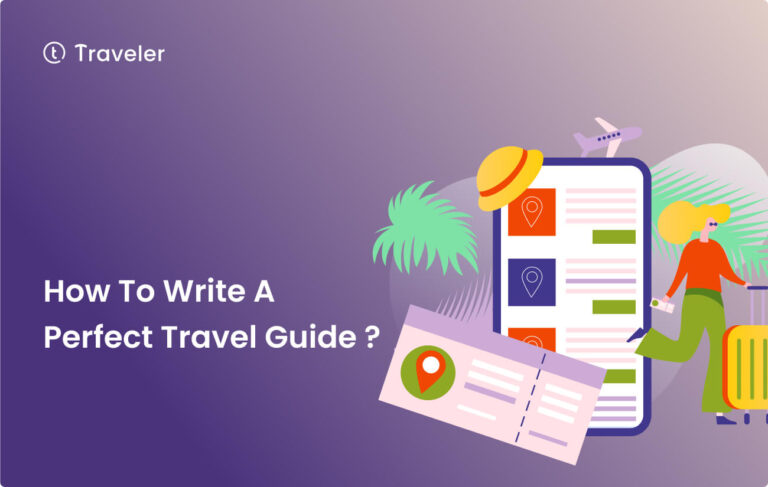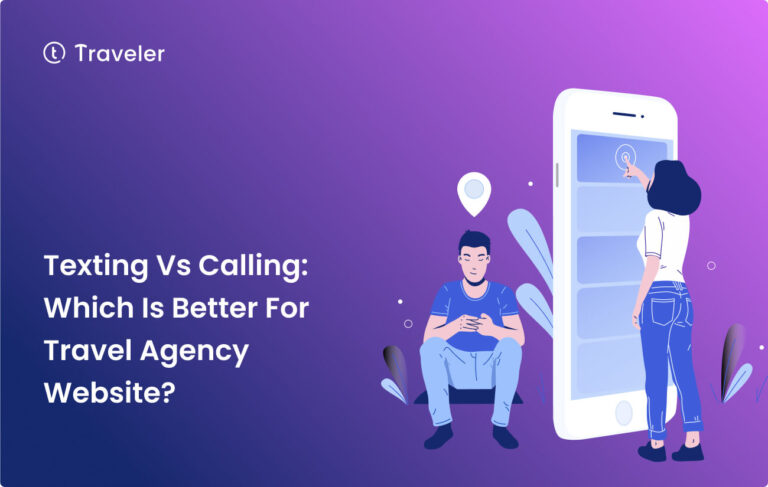The complete guide of online marketing for travel agency website
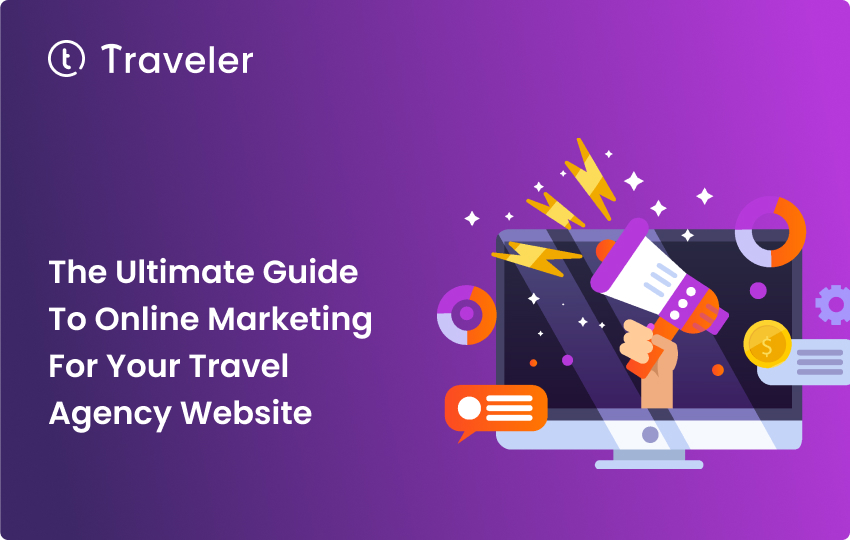
This comprehensive guide of online marketing for travel agency website will help you learn how to create an effective online presence, reach more customers, and increase sales. Because the internet has become an increasingly important tool for companies looking to establish and maintain a strong presence in the travel industry. With most travelers now turning to online sources for their booking needs, it has become even more critical for travel agencies to understand how to use online marketing techniques effectively.
Online marketing is an umbrella term that refers to any activity carried out by a business or individual to promote products or services via the internet. It encompasses email campaigns, social media posts, search engine optimization strategies, and display advertising. This means creating a presence across multiple channels for travel agencies to attract new customers and keep existing ones coming back repeatedly.
Online marketing is critical for travel agencies because it allows you to reach new customers in ways that weren’t possible before the internet era. And without spending much money on traditional methods like television commercials!
Search Engine Optimization (SEO)
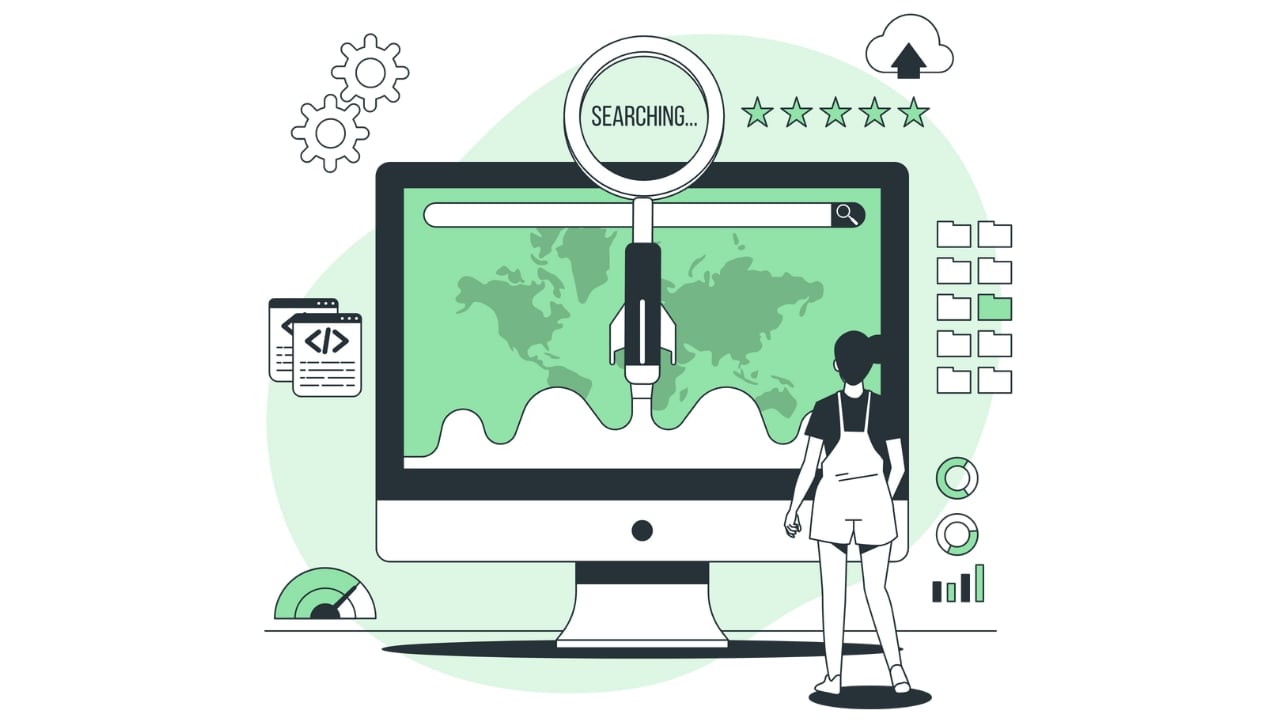
Search Engine Optimization, or SEO, is a powerful tool for online marketers. It’s the process of making your website, its content, and its keywords as good as they can be so that they show up higher in search engine results. If your website is more visible, more people are likely to look at it and interact with it. These people could be potential customers for your travel agency.
Here we’ll explore three key areas of SEO: keyword research, on-page optimization, and off-page optimization – all geared toward helping you market your travel agency website online.
- Keyword research is the process of finding words that are related to what people look for when they want to find travel services. Once you have a list of relevant keywords, you can optimize them into titles and headings. And other parts of your page that show search engines what your page is about.
- On-page optimization includes adding keyword-rich content to titles and meta descriptions and making them fit the page. As well as linking different pages on your website to each other and making pages load faster. All of these things can make it easier for people to find your website in search engine results when they look for relevant keywords.
- Off-page optimization refers to things you do outside of your website that help build your credibility, like getting backlinks from other websites that are related to yours or being active on social media. The more links you have to your site, the higher it will show up in search engine results.
Content Marketing
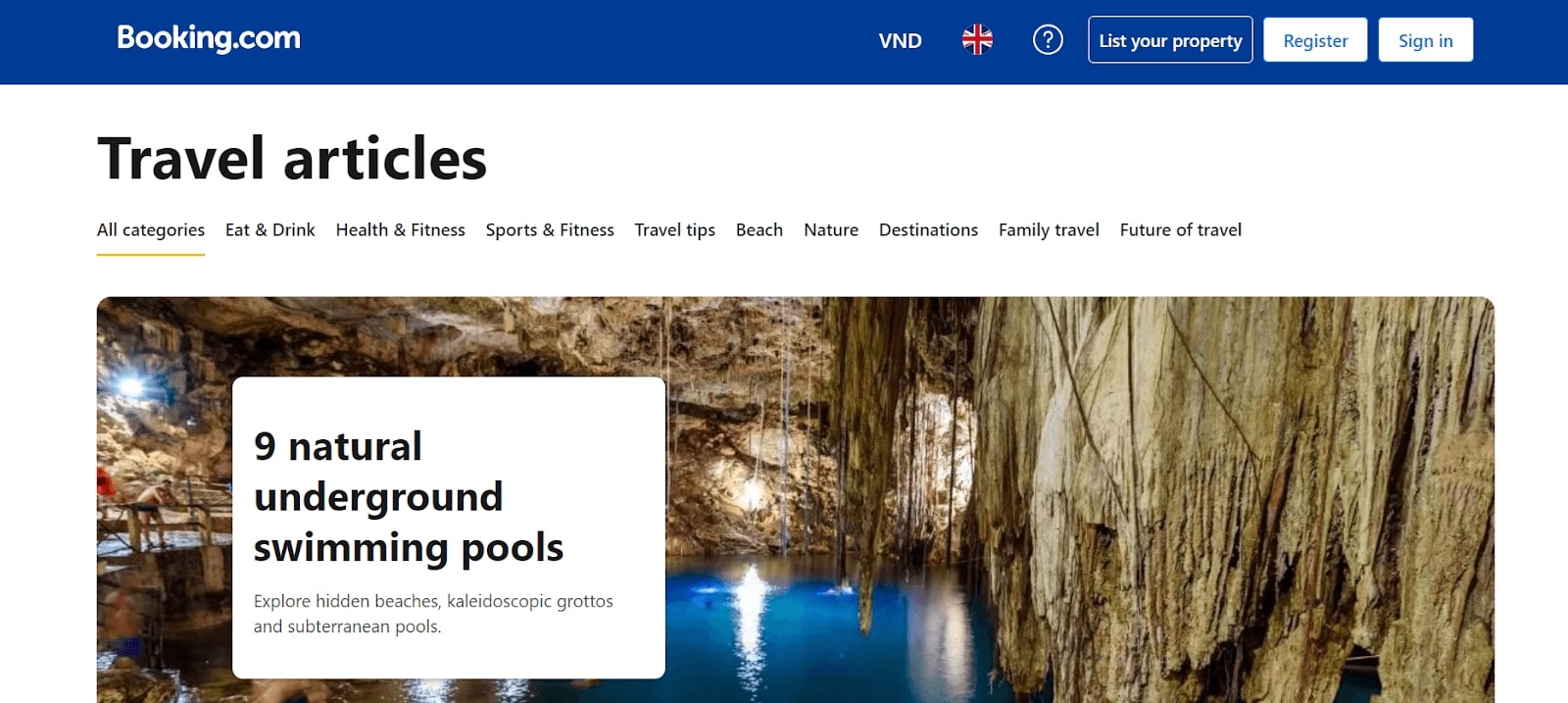
Content marketing is a good way to get people to notice your travel agency online. It means making valuable, relevant, and consistent content that you share with your audience through blogs and social media. With the right plan, you can find new customers and keep the ones you already have interested for years to come.
Blogs are a great way to show off your knowledge of the travel industry and gain the trust of potential clients. You can write about popular places to visit, tips for traveling abroad, how to choose where to stay and how to get around, or reviews of local attractions.
Make sure the content you write for your blog posts is well-written, interesting, and, most importantly, relevant to the people you want to reach.
Social media is also a great way to spread the word about the content on your travel agency’s website. You can share your content on social media sites like Instagram, Twitter, Facebook, YouTube, etc. You can make videos about fun trips or post pictures of the amazing places in your packages.
Also, you should use hashtags to make your posts more visible and use stories to talk directly with potential clients. Engaging with other accounts in the same niche also helps your brand grow naturally by getting more people to follow you on social media sites.
Email Marketing
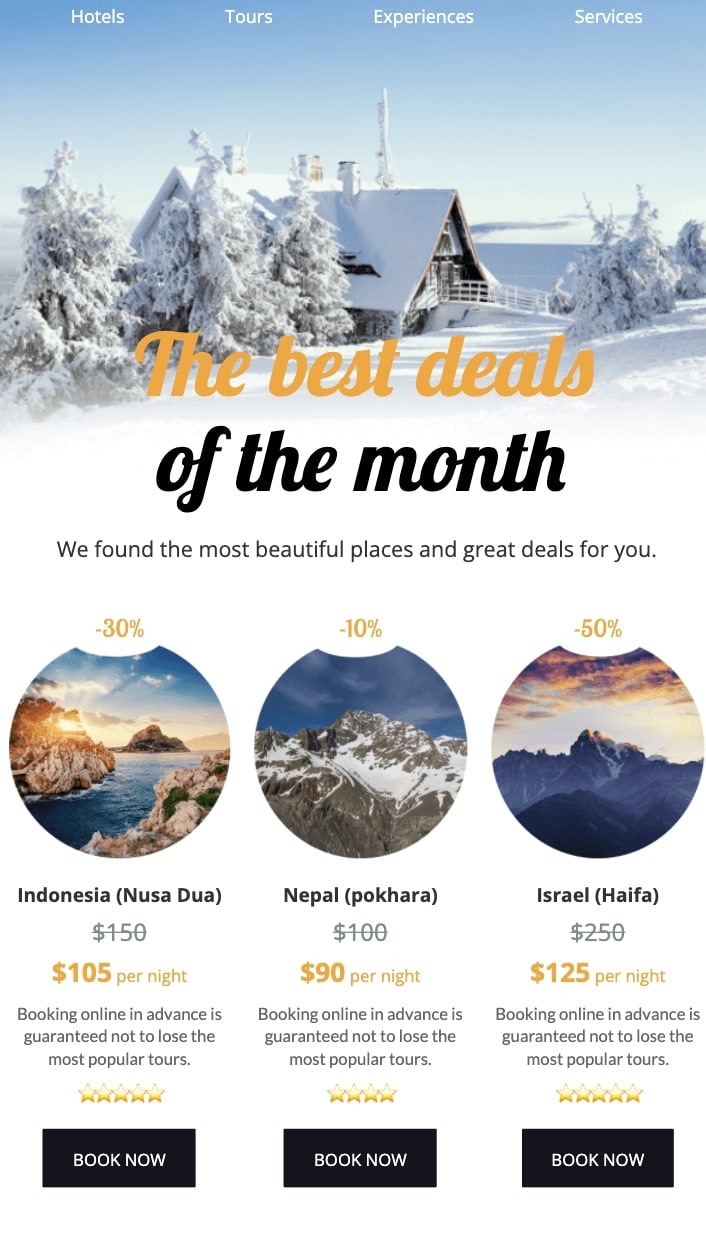
Email marketing is important for every business, but especially for a website for a travel agency. In online marketing, building an email list and sending out good emails can be a good way to reach customers.
Putting together an email list is the first step to email marketing that works. You can do this by getting customers’ email addresses when they book or by giving them something for giving you their contact information.
Once you have a list of email addresses, you need to send emails that people want to open and click on. This means having subject lines that are both interesting and relevant, as well as content that is useful and sticks with readers.
Also, think about automating some emails, like welcome messages or reminders about upcoming bookings, so you don’t have to send them each time by hand. The other important part of email marketing is segmentation. It lets you focus on the needs and interests of the people you want to reach.
Pay-Per-Click (PPC) Advertising
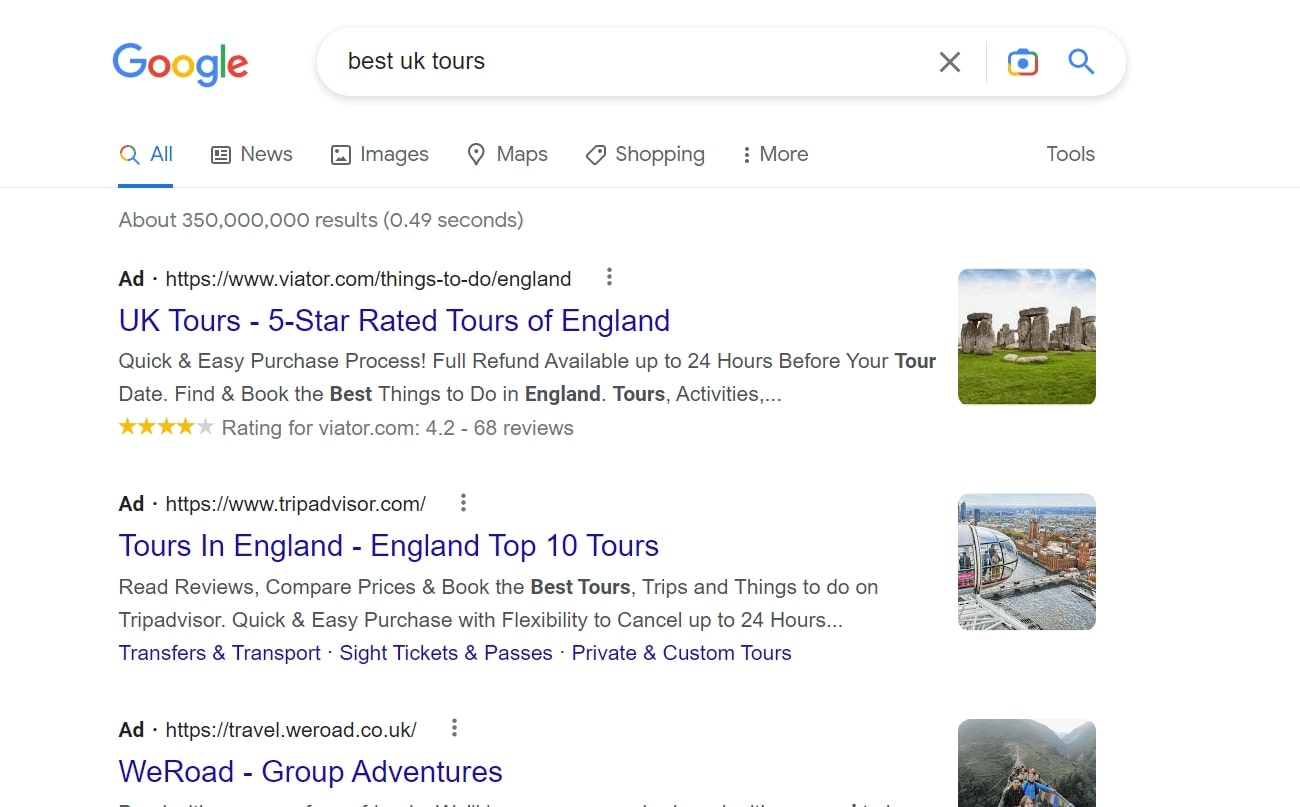
Pay-per-click advertising (PPC) is a great way to get people to notice your travel agency’s website in the online market. Setting up a well-targeted PPC campaign can bring more people to your site and get you more bookings.
When you set up a PPC campaign for your travel agency website, it will be important to choose the right keywords. Keywords should be related to your business and services, like “travel packages” or “cheap flights.” You should also think about long-tail keywords, which are more specific phrases that customers might use when looking for something related to your travel agency website.
Another tip for keyword research is to keep an eye on search trends and new travel-related keywords. So, you always know the latest words and phrases in your field.
Once you’ve set up a PPC campaign, it’s important to measure and improve its performance to get the most out of your money (ROI). To figure out how well PPC campaigns are doing, you have to look at how many people clicked on the ad. How much traffic did those clicks bring in? And how many of those visitors turned into customers?
You can also see how engaged users are by looking at things like how long they stay on the site and how many pages they visit per session. This information helps you decide which ads work best for your business and where changes may be needed to make them work even better.
Influencer Marketing
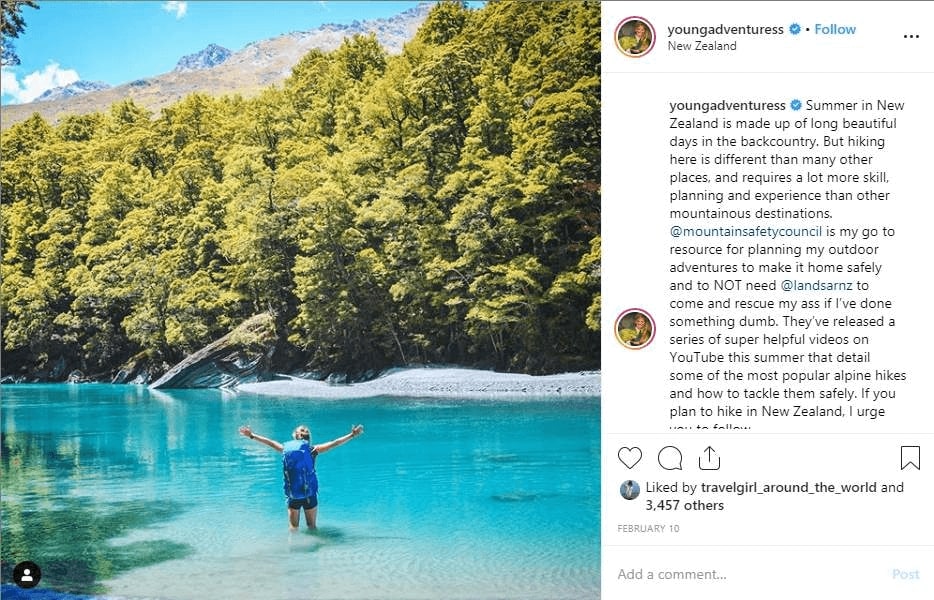
Influencer marketing has become a popular way for travel agencies to increase their online visibility. Many travelers get advice from influencers before deciding where to go on vacation these days. So, travel agencies need to find the right people to influence and build good relationships with them.
The first step is to find out who your target audience follows on social media sites like Instagram, YouTube, or Twitter. Once you’ve found these well-known people in the travel niche who have a lot of influence, you can start building relationships with them through direct messages or email outreach campaigns. Make sure your message is personal and shows how working together could help both of you.
Once connections have been made, it’s time to work together on campaigns and promotions. A person with a lot of influence can talk up your travel agency’s website, which can help you build trust with potential customers.
They will help people know about your brand by sharing good content that resonates with their followers and encouraging them to check out your site. This can get more people to visit your website, which can lead to more sales and more money for your business.
Mobile Marketing
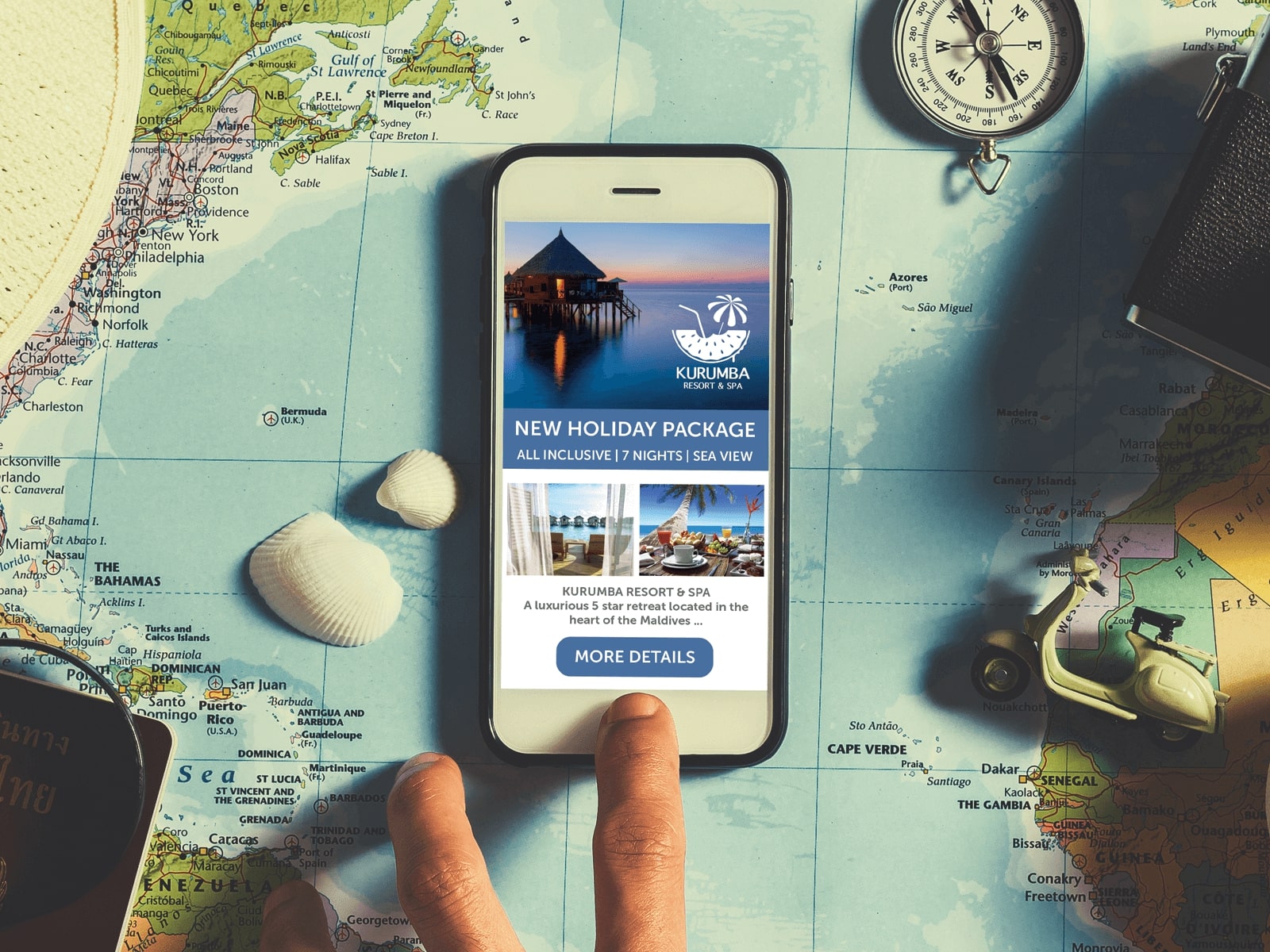
Mobile marketing is crucial for travel agencies because more and more people use their phones to book flights, hotels, services, and tours.
Your travel agency must have a website that works well on mobile devices if it wants to stay in business. If your website is mobile-friendly, it can be easily viewed on any device, like tablets and smartphones.
Your mobile-friendly website should also have features like SMS messaging and push notifications to let customers know about special offers or discounts. You can reach out to potential customers directly through their phones with these features. This makes it more likely that they will choose your travel agency over another one. Also, SMS messaging or push notifications let you send messages that are specific to each customer and their needs.
They can also be a good way for customers who have already booked a trip through your agency’s website to get up-to-date information from your company, such as flight delays or special deals. With these tips, you’ll be able to get customers more involved, which will make them more likely to book with you.
Case studies of successful online marketing campaigns for travel agencies
Airbnb
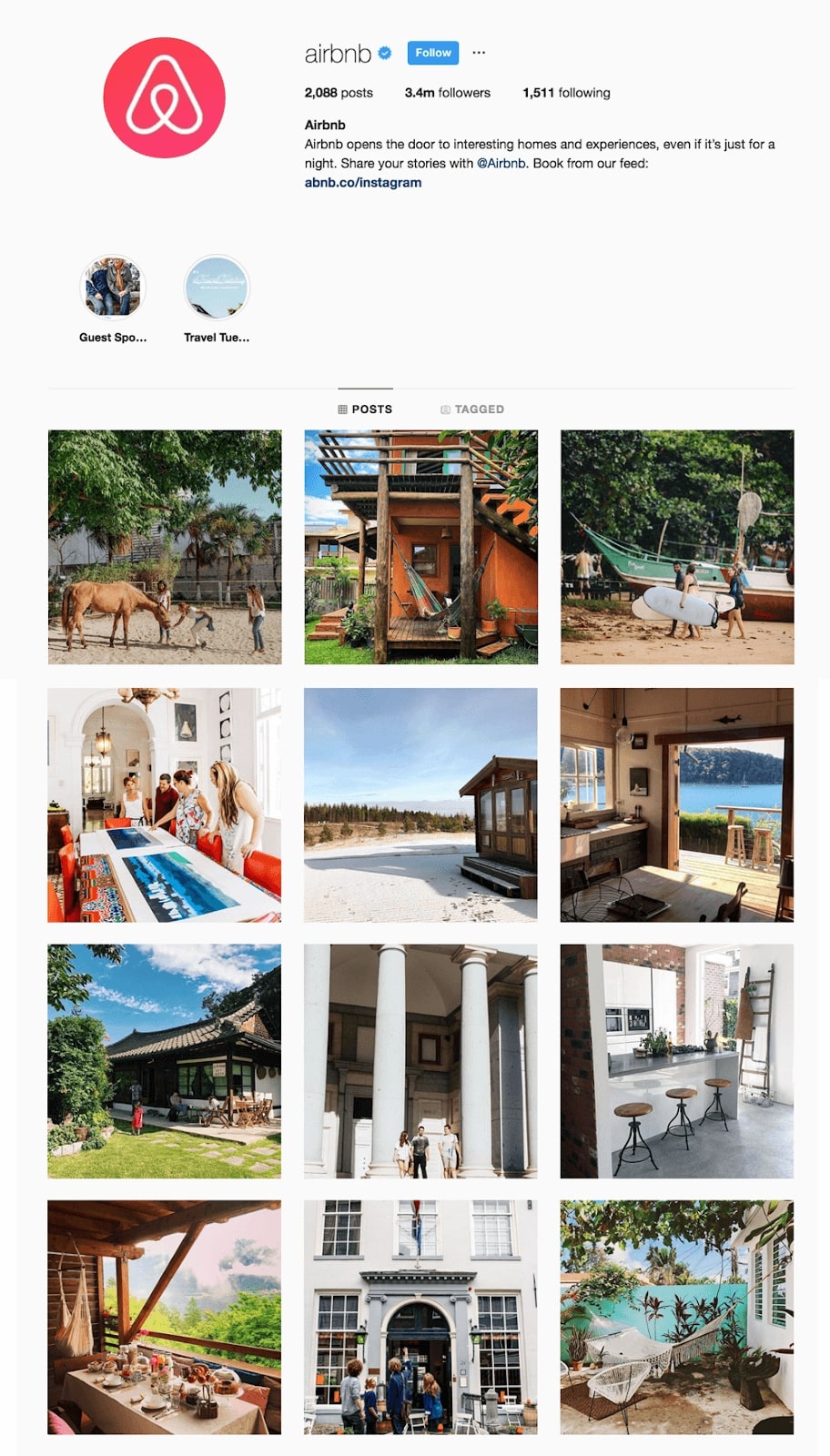
Airbnb’s “Experience” campaign on Instagram in 2018 is a good example of how a travel agency website can use the internet to market itself. This campaign was built around the word “experience,” so that travelers could find unique and personalized things to do near their destination.
Airbnb reached out to potential customers on Instagram by showing interactive stories about the experiences they offered and getting influencers to back them up.
This campaign’s success can be traced back to how much it focused on visual content. Airbnb used colorful pictures, videos, and GIFs to show off what it had to offer and get people to feel something.
Throughout the campaign, specific hashtags like #airbnbsummersurprises were used to reach the right people. This made it possible for people all over the world to find out about these experiences, even if they didn’t follow Airbnb’s account.
Expedia
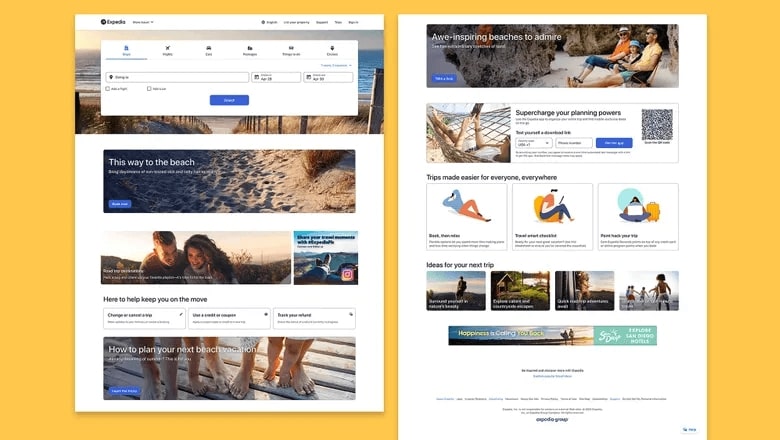
Expedia, the best online travel agency, made a conscious effort to change its brand in 2021 by using successful online marketing strategies that focused on improving the UX UI of both its website and mobile app.
As a result of this digital transformation, the user interface was made better, which made booking easier and gave users better search tools.
Expedia used a number of strategies to improve their online presence, such as making pages load faster, offering personalized deals and discounts, and making interactive content about their destinations.
By doing these things, the company was able to reach more potential customers and give them a better overall experience than other travel agencies.
TripAdvisor
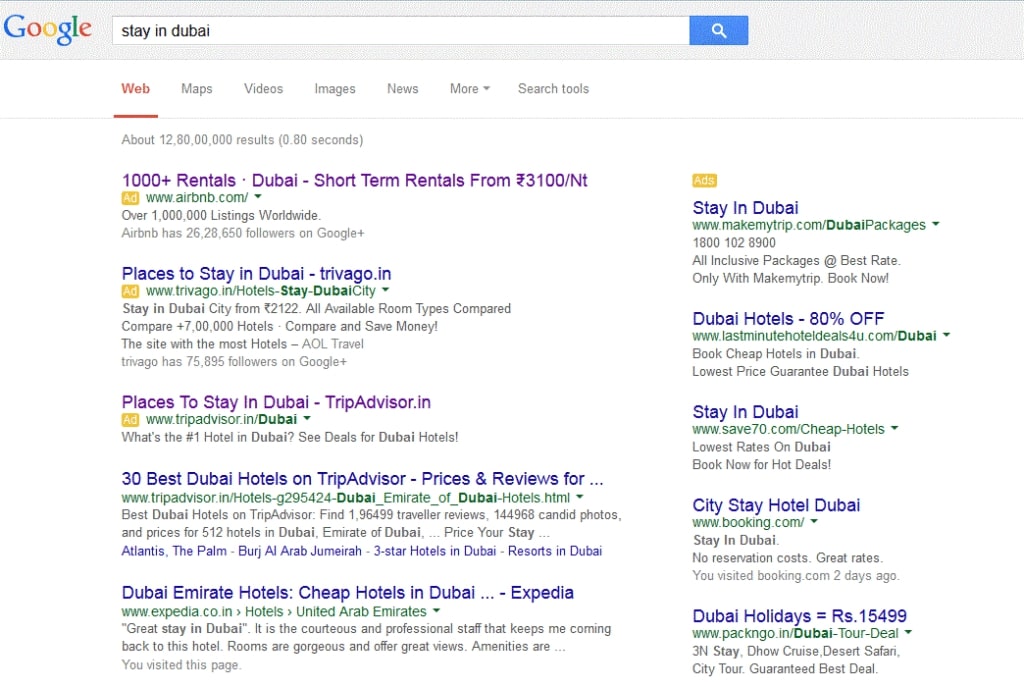
TripAdvisor is a popular travel website that lets people read reviews, get tips, and book trips. They have become one of the most popular travel sites in the world by using SEO, partnerships, affiliates, and social media as online marketing tools. With these strategies, they have reached 375 million unique visitors per month.
TripAdvisor’s success can be traced back to their use of SEO techniques, such as improving page load times and optimizing the content on their site. Also, they work with other travel sites to get more traffic and visibility on search engine results pages (SERPs).
TripAdvisor also interacts with users on social media sites like Facebook and Twitter, where they share useful information about places and attract potential customers.
Lastly, TripAdvisor has set up partnerships with affiliates who promote their website in a variety of ways.
Conclusion
Online marketing is a great way for a travel agency to get more people to visit their website and book trips. Your travel agency website can have a strong online presence if you use SEO, content marketing, email marketing, PPC, influencer marketing, content marketing, and mobile marketing.
Online marketing is always changing, so you have to pay attention to it all the time. Still, the right approach can help your business in ways that are hard to measure. You can make sure that your travel agency website stays competitive in the digital age by keeping up with news, trends, and changes in the industry and adapting as needed.

